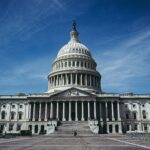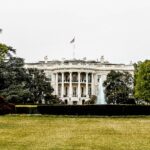The Fight for Free Speech on Twitter
The announcement that Elon Musk bought Twitter for $44 billion sent shockwaves through the social media world. Musk, the CEO of Tesla Motors and SpaceX is, by far, the richest man in the world; less than a month prior to offering to buy Twitter, he had obtained the largest share in the company at the time. The self-proclaimed “free speech absolutist” has stated that “Free speech is the bedrock of a functioning democracy, and Twitter is the digital town square where matters vital to the future of humanity are debated.”
Reactions to this business deal have been varied across the political spectrum; activist Shaun King tweeted “At its root, @ElonMusk wanting to purchase Twitter is not about left vs right. It’s about white power…He’s upset that Twitter won’t allow white nationalists to target/harass people.” Others, who have experienced censorship through the platform, are celebrating the ownership change.
Batya Ungar-Sargon, deputy editor at Newsweek, while sympathetic to positive reactions, expressed concern that “both sides are perfectly happy to cede total control to corporate overlords as long as they have their politics when, of course, the problem is that we have ceded total control to corporate overlords period.”
These various and nuanced opinions regarding Musk’s Twitter takeover are illustrative of a broader conversation regarding social media, speech, and online behavior. As the usage of online forums becomes more common and influential, the outcomes of that speech have more drastic implications. One example of this is the debate over “doxing” brought to the forefront by Taylor Lorenz and the anonymous Twitter account Libs of TikTok.
Lorenz, a reporter for the Washington Post, published an article revealing the name, job, and home address of the woman who runs Libs of TikTok (the address was later removed). In the article, Lorenz claimed that Libs of TikTok (which simply reposts TikToks with objectionable content from left-wing individuals) “has emerged as a powerful force on the Internet, shaping right-wing media, impacting anti-LGBTQ+ legislation and influencing millions by posting viral videos aimed at inciting outrage among the right.”
The revealing of private information and the accusation that the account is “a collective, molded to the hive mind of the right-wing Internet” stand in ironic contrast to an MSNBC segment aired just weeks prior; the segment focuses on the plight of online harassment facing female journalists, and features none other than Taylor Lorenz. “You feel like any little bit of information that gets out on you will be used by the worst people on the Internet to destroy your life,” she says to her interviewer.
In the last several years, some have argued that Twitter has become the battleground for ‘misinformation’ largely in political spheres. In 2018, a video on Twitter showing a Catholic high school student wearing a “Make America Great Again” hat grinning at a Native American man who stood inches from his face garnered 2.5 million views before it was taken down. The student was eventually exonerated of all wrongdoing, but not until after accusations of racism and hateful conduct spread like wildfire, and he and his family received death threats .
Twitter’s attempt at gatekeeping information came to a peak when the New York Post broke a story about a laptop owned by Hunter Biden which contained incriminating information. Rather than attempt to independently verify the story, outlets like NPR called the reporting a distraction and refused to discuss it. Meanwhile, Facebook openly admitted to reducing the story’s distribution, and Twitter locked the accounts of the New York Post, then-White House Press Secretary Kayleigh McEnany, and the official Trump campaign, along with others who dared to share the story. This was weeks before the 2020 election.
As Elon Musk begins to make changes to Twitter, people on both sides of the political aisle are wondering how speech will be impacted. Regardless of how Musk is viewed, it is clear that social media —and Twitter in particular—has become a beast of its own. With a change in leadership, maybe that, too, will change.




